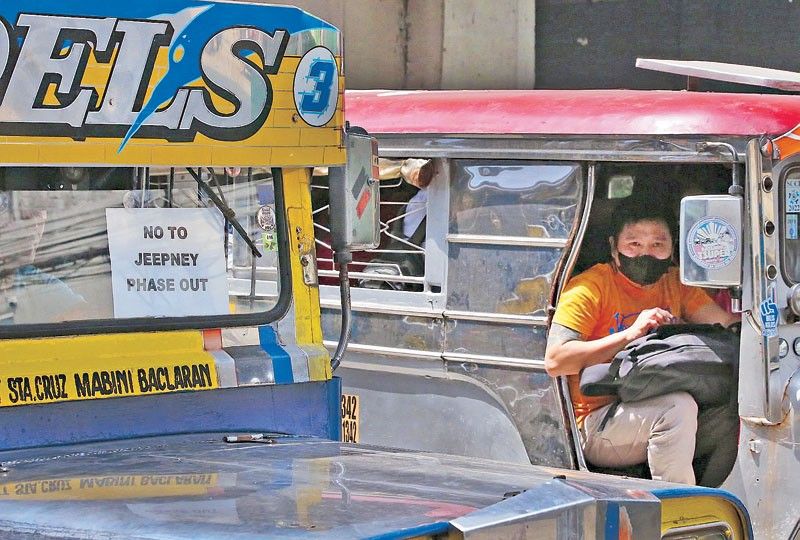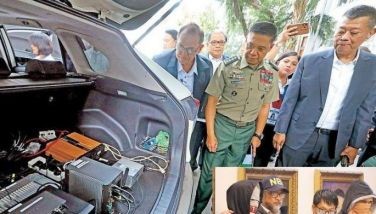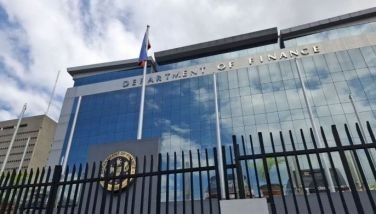Jeepney phaseout deadline extended

Marcos wants PUV modernization plan reviewed
MANILA, Philippines — The government has moved the deadline for the phaseout of jeepneys under the Public Utility Vehicle Modernization Program (PUVMP) to the end of the year, following threats of a nationwide transport strike.
Land Transportation Franchising and Regulatory Board (LTFRB) Chairman Teofilo Guadiz announced yesterday the delay in the consolidation of public utility vehicles (PUVs), effectively allowing tens of thousands of jeepneys, UV Express Service units and multicabs to continue unhampered operations until the end of December.
But Guadiz downplayed the threats of transport groups to hold a week-long strike to protest the LTFRB’s moving the June deadline for PUV consolidation.
“To be honest, there is no pressure for us from the strike. More than 90 percent of the transport groups have signified support to the LTFRB,” he said.
The decision to extend the deadline, he said, was in response to pronouncements made by President Marcos and Transport Secretary Jaime Bautista and sentiments raised by senators.
“In compliance with the advice of Sec. Jaime Bautista and the pronouncement of President Bongbong Marcos, we extended the consolidation of jeepneys from June 30 to the end of December 2023,” Guadiz, speaking in Filipino, told a press briefing.
“This is in response to the request of the transport sector and the instruction of the secretary,” he added.
He noted that the LTFRB also deferred to the appeal of senators who urged the LTFRB to extend the deadline to give operators more time to comply with the requirements under the PUV modernization program.
Under LTFRB Memorandum Circular 2023-013, single operators who fail to meet the consolidation requirement by the deadline shall have their franchises or certificate of public convenience revoked.
The franchises of operators who fail to consolidate shall also be “automatically rewarded” to the existing consolidated entity operating along the same route.
Latest data from the LTFRB showed that only about 96,000 jeepney units have met consolidation requirements under the PUVMP.
This is equivalent to 61 percent of the 158,000 targeted traditional jeepney units plying the country’s roads.
The UV Express Service sector is doing better in terms of compliance, with 72 percent of 19,000 units nationwide having already complied with the requirement.
He said they are also discussing other issues relative to the PUVMP, including the hefty costs of the modern units.
“That’s one of the areas we will be studying. I believe they are setting a supplemental budget that they request from the Department of Budget Management whenever the need arises. The department has the flexibility to realign the budget as it sees fit,” he added.
Transport strike
Meanwhile, Marcos expressed hope transport groups would not push through with their planned week-long strike and acknowledged that the jeepney modernization program is “not urgent” because the country still lacks the infrastructure to implement it.
Transport group Manibela said it was planning to hold a strike from March 6 to 12 to protest the June 30 deadline for the phaseout of traditional jeepneys, claiming it would deprive drivers of their livelihood.
Many drivers cannot meet the June 30 deadline as the high costs of modernizing jeepneys are burdensome to them, Manibela said.
“I hope it (strike) won’t push through, that it can still be discussed. That is not good news. I was watching them this morning and they said they would push through with it,” Marcos, speaking in Filipino, told reporters in a chance interview in Manila.
The President said workers would be affected if the transport strike pushes through.
“I’m hoping that through the initiatives we are considering, we can convince the transport groups not to go on strike because our people would suffer,” he said.
He said the government is ready to look into the jeepney modernization program and ensure that it would not be too burdensome to transport workers.
“Based on my studies, it seems that the implementation of the modernization is not good. It’s true that jeepneys, tricycles and buses need to be safe. But the standards employed varied,” the President said. “Maybe we can talk to transport groups and say that we can amend it.”
While acknowledging the program is supposed to be “a first step towards electric vehicles,” Marcos said the reality is that renewable energy only contributes about 30 percent of the Philippines’ power source.
“We have to implement it (jeepney modernization program) in a different way... We have to look properly at what the real timetable is for the introduction of electric vehicles, when it can be done, if it can be done now,” he said, noting that current infrastructure cannot support it yet.
For its part, the Taguig Transport Service Cooperative slammed members of Manibela for planning the strike, saying jeepney drivers and operators were given enough time to hold public consultations and join cooperatives to afford the modern units since the program rolled out in 2017.
“Our franchise is a privilege, not a right. That is why transport strikes are not allowed. Why are they asking for an extension when this has been going on for a long time already?” Freddie Hernandez, a leader of the transport cooperative, told radio station dzBB in an interview.
‘Welfare check’
In Congress, Sen. Francis Escudero said the government should audit the status of the jeepney modernization program of the Department of Transportation amid reports that some new replacement vehicles are breakdown-prone and have been grounded for lack of spare parts.
Escudero said such evaluation should also be a “welfare check” on the participating drivers and operators if they have been able to meet amortization payments on units whose price tags had been assailed as higher than SUVs.
“The government said, ‘full speed ahead on jeepney modernization’. But in any government program, there must be mid-implementation assessment to determine and repair any weaknesses,” the senator said.
Escudero cited the experience of Sorsogon when he was still the governor, where modern jeepneys “spoon-fed by the government to cooperatives have become unusable after two years” due to lack of spare parts because “they’re made in China.”
“We have been sold lemons. So how can these be modern jeepneys when they conk out after a few years? How can they be better replacements of sturdy 30-year-old jeeps?” he said.
Escudero said vehicle replacement is just one of the many components of the jeepney modernization program.
“The checklist is actually long, and it includes Route Rationalization Plan. And when I was governor, I think we were one of the few which had its plan approved,” he said, adding replacing vehicles is just one part of modernization and “what’s the use of deploying new units under a system that remains chaotic?”
Deputy Speaker Ralph Recto joined his former colleagues in the Senate in calling on the national government to temporarily halt and review the transportation department’s program of phasing out old and dilapidated jeepneys.
“These calls to evaluate the new program are beneficial speed bumps to ensure that the program will not crash. Policy recklessness is more dangerous than reckless driving,” the Batangas congressman said.
“The jeepney modernization (program) needs tune-up, to fix factory defects. There is no harm in looking under the hood of the program. A tune-up is not a bad thing,” Recto explained further.
“This is very much like cars: If many alarm lights in the dashboard are blinking, then you must step on the brake. You don’t step on the gas,” he said. “Just like the PMS (preventive maintenance schedule) in cars, this should also be done in the modernization program.”
Monopoly
Meanwhile, militant youth group Anakbayan said the government’s planned phaseout of traditional jeepneys will only lead to a monopolization of the public transport sector.
In opposing the government’s plan, Anakbayan said the program is a financial burden to jeepney drivers.
“This will bury jeepney drivers in debt with the expensive price of modernized jeepneys that cost P2.4 million per unit,” the group said in a statement in Filipino.
Anakbayan also slammed the government for offering loans with an interest rate of six percent wherein the total payment for a unit could reach P3.4 million. – Alexis Romero, Marc Jayson Cayabyab, Paolo Romero, Delon Porcalla, Emmanuel Tupas
- Latest
- Trending































